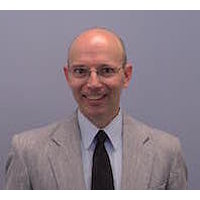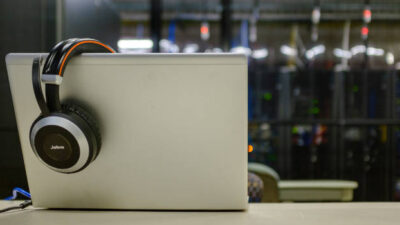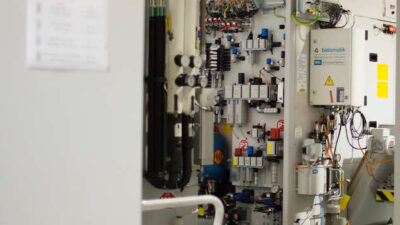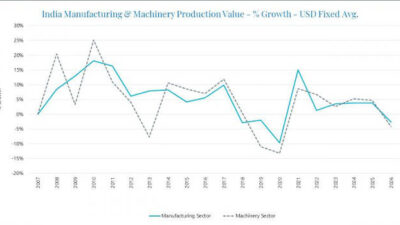Ed Kompass, a Control Engineering editor from 1954 to 1987, passed away on Aug. 31, 2020, at age 93. He was a regular contributor after retirement and last wrote a column for the 50th anniversary issue (linked below), “We never could have dreamed,” in 2004.
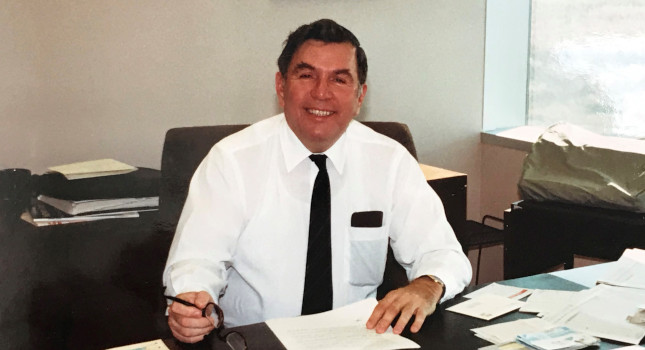
A Control Engineering editor for 33 years, Edward J. Kompass passed away at age 93 on Aug. 31, 2020, in his South Lincoln, Vt., home. After retirement as editorial director, he was a regular contributor, then less-frequent contributor, finishing with a 50th Control Engineering anniversary column, “We never could have dreamed,” in 2004.
Kompass helped write or edit more than 400 monthly issues, including when print editions were regularly more than 150 pages. While publishing didn’t yet include websites, webcasts or even email, during Kompass’ tenure typesetting moved from manual to automatic to electric, and printing presses were becoming more integrated with precision automation, controls and electronics to reduce waste, improve quality, and increase throughput. These aspects have been central themes of Control Engineering coverage; to help those working with automation do their jobs better. Control Engineering has been published by CFE Media and Technology since 2010.
His daughter, Julie, one of six children, offered the following details from the Ed Kompass obituary:
- Was born Dec. 22, 1926 in Jersey City, N.J.
- Served in the U.S. Navy from 1944 to 1946 as an Electronic Technicians’ Mate Third Class on an LST (Landing Ship, Tank) helping return soldiers from the Pacific region at the end of WWII.
- Earned a Bachelor’s degree in mechanical engineering from Stevens Institute of Technology, Hoboken, N.J., specializing in mechanical and electrical engineering.
- Worked as a designer of computer peripheral equipment and servo control systems.
- Started with McGraw-Hill, June 1, 1954, and worked on the first Control Engineering issue in September 1954.
- Received the prestigious ABP (American Business Press) Crain Award in 1986, honoring those who made outstanding career contributions in editorial excellence.
- Had diverse interests including word games, puzzles, woodworking, model trains, hi-fi stereo, jazz music and just about anything he could take apart and repair. While fixing a radio, he reportedly designed and fabricated a capacitor from wires and paper.
Former Control Engineering executive editor, Frank Bartos (retired), was hired by Kompass in 1986 and worked on the publication for 20 years (and more after retirement). Bartos said: “What I remember most about Ed was his combined skills of editor, writer and engineer that extended into the theoretical and practical parts of the business. He also paved the way for Control Engineering’s maturation and worldwide recognition – including active promotion of the magazine through various national and international conferences and exhibitions including International Federation of Automatic Control (IFAC), the Purdue conference [Control Engineering’s Advanced Control Conference, a collaboration with Dr. Theodore J. Williams of Purdue University], and the Control Engineering shows [a series of annual automation conferences in venues including McCormick Place.]”
Ed Kompass, on computer control, from 2004
From the 2004 Control Engineering column, Kompass said, “We saw electronic digital computers coming as the means to match computing solution times to faster industrial control problems. So in 1955 Control Engineering editors started publication of two parallel series of articles on “Basic Digital Computer Theory” and “Digital Computer Applications in Control” that ran through 1956. But in 1955, IBM and Univac called their machines “electronic data processors,” not digital computers. IBM 700-series mainframes stored their data, and their programs for processing data, on punched cards. Electronic components were vacuum tubes. Compare mainframe-computing speeds quoted by IBM for the 700 series as “14,000 operations per second” with today’s claims for its fastest computers measured in terabytes per second. That’s a computing speed gain of a billion times in 50 years! We never would have guessed it would be that great.”
Kompass is survived by his wife, Amelia (Emmy) of 69 years, six children, seven grandchildren, and four great grandchildren.
Mark T. Hoske is content manager, Control Engineering, CFE Media, [email protected]. Among Hoske’s first assignments after his 1994 start at Control Engineering was editing contributed columns from Ed Kompass, who he subsequently met at a Control Engineering Editors’ Choice Awards ceremony (precursor to the Engineers’ Choice Awards).
KEYWORDS: Edward J. Kompass obituary, Control Engineering
ONLINE
www.controleng.com/online-courses
